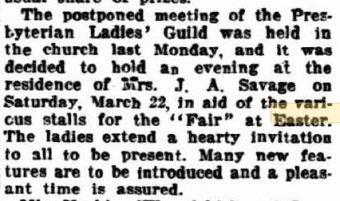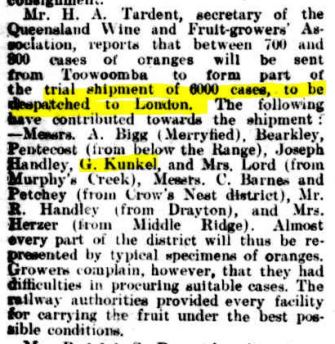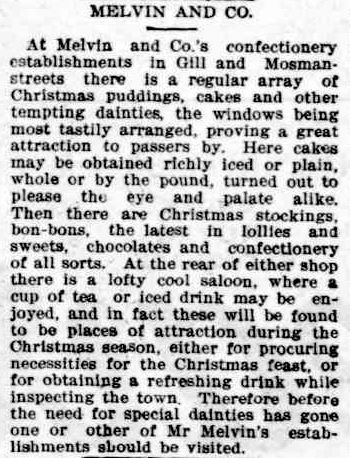 Food and festivities go together like the proverbial horse and cart. How many of our memories are associated with the pleasures of family and friends coming together to celebrate an event and inevitably a spread of culinary treats is involved? There’s a reason why we’re missing these gatherings during the pandemic as they bring us together and become part of family lore. Definitely part of our personal gratitude landscape. Although the Easter bunny has been declared an “essential worker” by many of our states’ leaders, without being able to attend a church service or bring family together it will be an Easter season that’s very different from any we’ve known before.
Food and festivities go together like the proverbial horse and cart. How many of our memories are associated with the pleasures of family and friends coming together to celebrate an event and inevitably a spread of culinary treats is involved? There’s a reason why we’re missing these gatherings during the pandemic as they bring us together and become part of family lore. Definitely part of our personal gratitude landscape. Although the Easter bunny has been declared an “essential worker” by many of our states’ leaders, without being able to attend a church service or bring family together it will be an Easter season that’s very different from any we’ve known before.
Eating is not merely a material pleasure. Eating well gives a spectacular joy to life and contributes immensely to goodwill and happy companionship. It is of great importance to the morale. Elsa Schiaparelli, Italian designer.
Ancestral Food and Festivities

Our ancestors, like us, celebrated their big religious festivals as well as smaller social gatherings like group, school or church picnics and dances. So how did they do this?
Decades ago I was lucky enough to interview one of the last grandchildren of George and Mary Kunkel, Annie Kunkel, and learn more about the family’s celebrations and food. She was also interviewed by the Murphy’s Creek local historian who generously shared his recordings with me and which I’ve transcribed. Let me share a little about their story.

When we had these picnics at Fairy Dell, it was a nice area, most of us rode, but then Stewart Handley had a German wagon and he’d have all the eats and paraphernalia, the kerosene tins or whatever we were going to boil for the tea, in this. But most people rode or might have ridden in a cart or sulky or something. On the public holidays we always had a picnic down there.
And then dances in Mr Chapman’s hall, with the galvanised iron walls, …. but the walls would get quite cold on a cold night. Mr Chapman played the violin generally. It was a simple social life that brought the people together. These picnics were good then we had the breaking up picnic for the school and then there was the Presbyterian Sunday School picnic and we all went to it… We all gave a donation for the cakes and things.[i]

The holidays are my favorite time of year! Christmas was always one of the biggest celebrations in Sweden, and I look forward to the festivities each year. Marcus Samuelsson, Ethiopian chef.
The Kunkel family would celebrate Christmas at their farm, Valley View. Annie described it like this.
Well we’d hang up some green bushes and things, get some greenery and put around. Home-made hop beer and home-made ginger beer, about the only time we’d have cordials or anything like that. You just had cool water in a water bag, a canvas bag. If you had a sugar melon, you’d wet a sugar bag, a sack or something and put it over the melon and put it in a shady part of the house where it got a draught and that cooled it and that sort of thing. We had always our own poultry, our own hams, and a plum pudding and a traditional hot dinner more or less, fowl and ham and vegetables & the men might have a couple of bottles of beer.[ii]
In George Kunkel’s case, traditional customs and skills came together with the food for the family as he had been a pork butcher at different times.

About the third week of May you’d get a cracking frost and you had to depend on that cold night for hanging the pig up. They’d get to it in the afternoon and I’m thinking back to my grandfather’s (George Kunkel) days –of course, the pig would be separated from the others and for about 24 hrs it would be given liquid, it wouldn’t be given a lot of solids which meant that its stomach was pretty empty. they had a big wooden trough — it was marvellous what the old people could make out of a hollow log close in each end and hold the boiling water for scalding the pig and the gallows was there for hanging it up and grandfather would –when the pig was opened — he’d get the stomach and whatever he wanted — the intestines –for the sausages. I don’t know if you knew the black puddings are made on the blood, but it was marvellous — when the pig was bled he caught the blood and he stirred it – he kept stirring it until it got cool and it didn’t clot then and he took the stomach and the intestines , the smaller ones for the white puddings but he always made the black puddings in the big one and some others; and he went down to the creek which was quite close just down the bottom of the hill where there was running water and he cleaned them thoroughly there — let the water run on them and turn them inside out and everything until they were thoroughly cleaned and then put them in a bucket overnight and probably put salt with them and the next day the performance of making the sausages!
We had beautiful Isabella grapes & he had other lovely grapes there…. My grandfather he had apples and pears and quinces and all these trees…We had apricots, peaches, China Flats (??), beautiful peaches. There’s no peach now today with the flavour that they had. You’d pick a peach and the juice would be running out of it before you started eating it. Beautiful white flesh.[iii]
I feel so very grateful that I had the opportunity to speak to Annie and get these wonderful insights into the family’s festivities. I’m also grateful that Cameron McKee generously shared his oral histories and his knowledge of Murphy’s Creek through phone calls and visits. My only regret is that my own grandfather (the eldest of the grandchildren) had been distanced from his family and yet he’d have had such amazing stories to tell of times with his grandparents, parents and siblings celebrating at the farm. He was never much of a chatterbox so the topic never came up.
An almost forgotten means of economic self-reliance is the home production of food. We are too accustomed to going to stores and purchasing what we need.Ezra Taft Benson, American leader.
My Melvin ancestors, meanwhile, were doing their best to bring food and festivities to the north Queensland town of Charters Towers.

Do you have family stories of your ancestors’ festivities and the food that was part of those events?
Footnote: Thanks to Lorraine Moore from the Toowoomba and Darling Downs Family History Society Facebook page for referring me to a webpage I’d missed on the location of Fairy Dell.
[i] Interview between Annie Kunkel and Cameron McKee c 1984, transcribed by Pauleen Cass 2005.
[ii] ibid
[iii] Interview with Annie Kunkel by Pauleen Cass, Toowoomba 14 December 1988 when Annie was about 86 years old.
I love the story of preparing the pig! Everything used. Blood pudding is one of my husbands favourite breakfast foods. (Not mine, thanks). My stories are all from my mother’s side of the family as my dads father was distanced from his family also. Then my grandfather died when I was about 9 so I never got to ask him anything about family.
My husbands ancestors were Métis and I found a small item in the 1875 newspaper that read: “Davis’ turkeys and Nolin’s whiskey made Pointe de Chene festive on Christmas Day.” That says it all right there haha!
LikeLike
It’s sad when families are distanced isn’t it? Being an Aussie I had to go look up Métis. Great quote.
LikeLike
Yes, sorely miss food and festivities right now. My sister and I have a weekly Saturday video dinner together as we shelter in place, but it’s just not the same. I plan to write about food for my letter J post. Your details here are fascinating since pork was a part of many of my ancestors lives as well.
LikeLike
Thanks Molly. Yes I’m sure we’re all missing the option to get together. A video dinner sounds good…are you able to be in the same place or just watching the same movie at the same time?
LikeLike
We get on zoom at our respective dinner tables and chat while we eat. It’s virtual, but just having a visual presence helps — plus she is painting her house to pass the time, so I get a video tour!
LikeLiked by 1 person
A couple of my friends turned 70 while isolated and that’s what they did since their family parties were cancelled… video conferenced the dinner party. It was a fun-tastic alternative!
LikeLiked by 1 person
Food certainly played a central role in our family festivities. My mother’s 2 tier sponge cake was always the centre piece of a birthday and for several years she raised turkeys on the farm to sell for Christmas. I imagine the tradition of “taking a plate” probably goes back a long way.
LikeLike
A good point Carmel re “taking a plate”…it may well go back to those pioneering days. Yum, sponge….my mum’s sponge with cream and strawberries was delicious but for the life of me I can’t make it.
LikeLike
My Grandmothers didn’t have recipes to pass on even though one of them ran a cafe in Cobar for some time. They were bush cooks who whipped up delicious meals, cakes and puddings from the recipes stored in their heads.
If only I would have sat, watched, listened and written down those lost recipes.
LikeLike
I can cook but never without a recipe. I suppose they made those recipes so often they were locked on the mental hard drive.
LikeLike
My mom was a great cook and whip up something out of nothing. I’m like you… I need to follow a recipe. One of my grandsons is going to be like my mother!
LikeLike